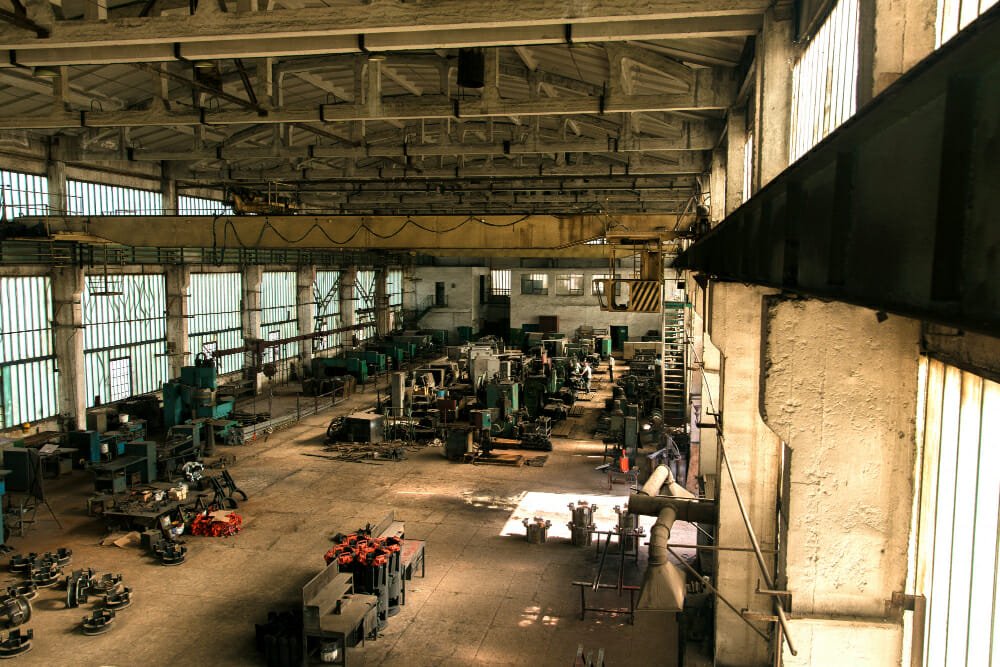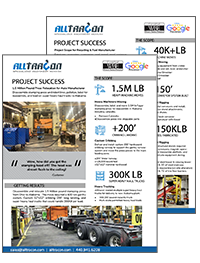In recent years, the manufacturing industry has witnessed a significant transformation through the integration of Internet of Things (IoT) solutions. The convergence of digital technologies and industrial processes has paved the way for heightened efficiency, improved quality control, and streamlined production processes. This article delves into the pivotal role of IoT in revolutionizing modern manufacturing, highlighting the various benefits and challenges associated with its implementation.
The Evolution of IoT in Manufacturing
The integration of IoT in manufacturing processes represents a significant paradigm shift in the industry’s operational landscape. From its inception as a concept to its current widespread application, the journey of IoT in manufacturing has been marked by notable advancements and milestones.
IoT technology has gradually evolved from basic machine-to-machine communication to the development of sophisticated interconnected systems that facilitate data-driven decision-making and predictive maintenance. The incorporation of IoT devices, sensors, and data analytics has enabled manufacturers to harness the power of real-time data for enhancing overall productivity and product quality.
The Significance of IoT Integration in Production Processes
The integration of IoT solutions in production processes offers a multitude of advantages that significantly impact operational efficiency and product quality. By leveraging IoT technologies, manufacturers can achieve seamless connectivity across various stages of production, leading to enhanced automation, optimized resource utilization, and improved monitoring capabilities.
Enhanced Automation and Remote Monitoring
The deployment of IoT-enabled devices and automated systems fosters a higher degree of process automation, leading to reduced human intervention and increased operational accuracy. With the implementation of IoT, manufacturers can remotely monitor critical production parameters, enabling proactive decision-making and timely interventions to prevent potential downtime or production bottlenecks.
Real-Time Data Analytics for Informed Decision-Making
The collection and analysis of real-time data through IoT sensors empower manufacturers to gain valuable insights into production trends, performance metrics, and potential areas for optimization. By leveraging advanced data analytics tools, manufacturers can make informed decisions regarding production scheduling, inventory management, and predictive maintenance, thereby minimizing operational inefficiencies and ensuring consistent product quality.
Seamless Integration of Supply Chain Management
The seamless integration of IoT in production processes facilitates a synchronized approach to supply chain management, allowing manufacturers to streamline procurement, inventory tracking, and distribution activities. Through the implementation of IoT-driven supply chain solutions, manufacturers can establish a transparent and agile supply network, reducing lead times and ensuring timely delivery of raw materials and finished products to customers.
Overcoming Challenges in Implementing IoT Solutions
While the integration of IoT solutions in production processes offers numerous benefits, it also presents a set of challenges that manufacturers need to address effectively. Overcoming these challenges is crucial to maximizing the potential of IoT in enhancing operational efficiency and maintaining product quality.
Data Security and Privacy Concerns
The proliferation of interconnected devices and data-sharing mechanisms in IoT-enabled production environments raises significant concerns regarding data security and privacy. Manufacturers must implement robust cybersecurity measures to safeguard sensitive production data and prevent potential breaches that could compromise operational integrity and expose proprietary information to external threats.
Integration Complexity and Interoperability Issues
The integration of diverse IoT devices and systems often introduces complexities related to interoperability and data synchronization. Manufacturers may encounter challenges in aligning disparate IoT platforms and ensuring seamless communication between different production units, leading to operational disruptions and data inconsistencies. Overcoming these integration complexities requires a comprehensive approach that emphasizes standardized protocols and compatibility testing across IoT ecosystems.
Infrastructure and Cost Implications
The implementation of IoT solutions necessitates the development of a robust infrastructure capable of supporting the connectivity and data processing requirements of interconnected devices. Manufacturers may face significant upfront investments in infrastructure development, including the installation of IoT sensors, network upgrades, and data storage facilities. Balancing the initial capital expenditure with long-term cost savings and operational efficiencies is crucial for ensuring a sustainable return on investment (ROI) from IoT integration.
Leveraging IoT for Quality Control and Process Optimization
The seamless integration of IoT solutions in production processes enables manufacturers to implement robust quality control measures and optimize critical operational processes. Leveraging IoT for quality control and process optimization involves the adoption of advanced monitoring techniques, predictive analytics, and adaptive manufacturing strategies that enhance product consistency and streamline production workflows.
Implementing Advanced Quality Monitoring Systems
The implementation of IoT-driven quality monitoring systems empowers manufacturers to track and analyze key performance indicators (KPIs) in real time, ensuring adherence to predefined quality standards and regulatory requirements. By deploying IoT sensors and monitoring devices at various production stages, manufacturers can detect deviations from quality benchmarks and initiate corrective actions to maintain product consistency and customer satisfaction.
Predictive Maintenance for Enhanced Equipment Reliability
The adoption of predictive maintenance strategies facilitated by IoT technology enables manufacturers to preemptively identify potential equipment failures and performance degradation. By leveraging predictive analytics and machine learning algorithms, manufacturers can monitor the operational health of critical production machinery, detect anomalies, and schedule proactive maintenance activities, thereby minimizing unplanned downtime and optimizing production efficiency.
Optimizing Production Workflows through Data-Driven Insights
The utilization of data-driven insights derived from IoT-enabled production environments allows manufacturers to optimize production workflows and resource allocation strategies. By analyzing historical production data and real-time operational metrics, manufacturers can identify bottlenecks, streamline production schedules, and allocate resources efficiently, leading to improved production throughput and minimized resource wastage.
The Future of IoT in Manufacturing: Emerging Trends and Innovations
The dynamic landscape of the manufacturing industry continues to witness the emergence of novel trends and technological innovations driven by IoT integration. Understanding the future trajectory of IoT in manufacturing is crucial for manufacturers seeking to stay ahead of the curve and capitalize on upcoming opportunities for operational optimization and product innovation.
Integration of Artificial Intelligence and Machine Learning
The integration of artificial intelligence (AI) and machine learning (ML) algorithms with IoT systems is poised to revolutionize manufacturing processes by enabling predictive analytics, autonomous decision-making, and cognitive automation. The convergence of AI, ML, and IoT technologies empowers manufacturers to develop intelligent production systems capable of self-optimization and adaptive response to dynamic operational conditions, fostering a new era of smart manufacturing and Industry 4.0 initiatives.
Expansion of Edge Computing Capabilities
The expansion of edge computing capabilities in IoT-driven manufacturing environments is reshaping the data processing and analytics landscape, enabling manufacturers to process critical operational data in real time at the network edge. By leveraging edge computing infrastructure, manufacturers can minimize latency, enhance data security, and facilitate localized decision-making, ensuring rapid response to production anomalies and preserving operational continuity even in the absence of a stable centralized network connection.
Integration of Blockchain for Enhanced Transparency and Traceability
The integration of blockchain technology in IoT-enabled manufacturing processes offers enhanced transparency, traceability, and data integrity across complex supply chain networks. By implementing blockchain-based solutions, manufacturers can establish immutable digital ledgers that record the entire lifecycle of a product, including its origin, production history, and distribution details. This enhanced transparency not only fosters greater trust among stakeholders but also facilitates efficient quality control, regulatory compliance, and product authentication, thereby mitigating the risks associated with counterfeit products and unauthorized modifications.
Conclusion
The integration of IoT solutions in manufacturing processes represents a transformative shift that is redefining the operational landscape of the industry. By leveraging the power of IoT-driven connectivity, data analytics, and automation, manufacturers can maximize operational efficiency, ensure consistent product quality, and foster innovation across various production workflows. Despite the challenges associated with IoT implementation, the benefits far outweigh the obstacles, making it imperative for manufacturers to embrace IoT as a cornerstone of their digital transformation journey. As the manufacturing industry continues to evolve, the seamless integration of IoT solutions will remain pivotal in driving sustainable growth, fostering operational resilience, and shaping the future of modern manufacturing.





